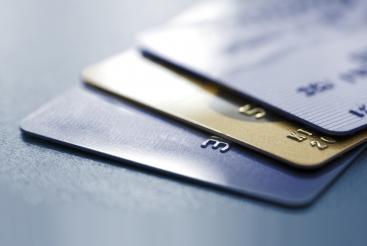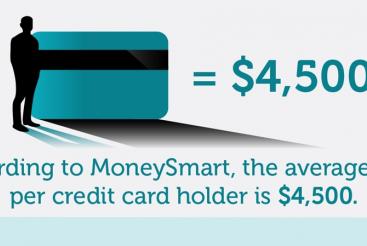What are the best ways to use your credit card?

How many credit cards do you have in your wallet? As of January 30, 2017, there were 16,699,272 credit cards in circulation around Australia1. That equates to approximately 70 per cent of all Australians owning a credit card1 - and some don't even use them.
If debt builds up too much and we're unable to pay it off, it could seriously affect our credit reports.
The average balance on a credit card in Australia is $3,083, and the average amount that's accruing interest is $1,9691. Credit cards are convenient and can help us out of sticky situations, but are we being unwise with how we're using them? If debt builds up too much and we're unable to pay it off, it could seriously affect the information reported on our Equifax credit reports.
Why can poor credit card etiquette affect your credit report?
Are you using your credit card for every purchase you make? Are you putting bill payments on it? That counts as poor credit card etiquette. Anything that isn't absolutely necessary should not be on your credit card, essentially.
You also need to keep track of your spending - and by that, we mean every single little detail2. Hold onto all of your receipts and check them against your credit card statements at the end of each month. It's more important than just ensuring you aren't being charged extra for certain things. You can also see where you're spending the most money, whether it's on food, drinks or entertainment. From that information, you can make lifestyle changes to save more money (but of course, that money might be needed to pay off your credit card bill).

Keep track of your spending to highlight areas you can improve on.
If you do spend a lot of money on your credit cards, and you don't pay them off quickly or regularly, you could start to impact your credit report. When a credit provider doesn't receive payment, so long as it's more than $150 and it's 60 days past the due date, they can add defaults to your credit report. They can add negative information to your repayment history as well, which might be one of the factors that cause credit providers to reject your applications for things such as home loans in the future.
If you can't prove that you're a reliable debtor, banks or lending institutions won't take you on.
How are we using our credit cards?
The average spend on a credit card in Australia is $112.701. That's money we don't physically have - it's credit that we're borrowing. Herein lies the problem. The average spend on a debit card, using money that we do have, is less than half, at only $49.971.
Essentially, we're more inclined to make expensive purchases on credit, and only smaller purchases using our debit cards.
What does that mean? Essentially, we're more inclined to make expensive purchases on credit, and only smaller purchases using our debit cards. Those larger purchases might not all be necessary - if you had to spend money that was currently in your bank account, would you still make that purchase of over $100? If the answer is no, you shouldn't put it on credit either.
Every time we buy something on credit and don't pay it off quickly, it can accrue interest. That might turn your $500 pair of shoes purchased on credit into a $720 bill two years later (assuming 20 per cent compound interest per annum). Are those shoes really worth $720, even if you could put off the payment? Unlikely.
Of course credit cards are useful tools - they can help us to purchase flights or pay for emergency expenses on the spot, then pay them off over time. However, if you make rash decisions and panic purchases, then can't pay off the debts, you'll be affecting your financial future.
Understand your financial position by getting a copy of your current Equifax credit report today.
Disclaimer: The information contained in this article is general in nature and does not take into account your personal objectives, financial situation or needs. Therefore, you should consider whether the information is appropriate to your circumstance before acting on it, and where appropriate, seek professional advice from a finance professional such as an adviser.
1Finder, Australian Credit Card and Debit Card Statistics 2017. Accessed May 2017.
2MoneySmart, Smart ways to use your credit card. Accessed May 2017.
Get your Equifax credit report for FREE today
Learn moreYou might also like

Choosing a credit card deal that works for you
Thinking about applying for a credit card? It'll pay to choose the right deal for your needs and financial situation, not just the first one you come across.

3 credit card mistakes that might be adding to your bill
Is your credit card debt racking up faster than expected? You could be the victim of one of these three common card-bearer mistakes.
How much of a difference does a higher credit card interest rate really make?
Are you looking at taking on a new credit card? Make sure you know exactly what you are getting yourself in for with a higher interest rate.
